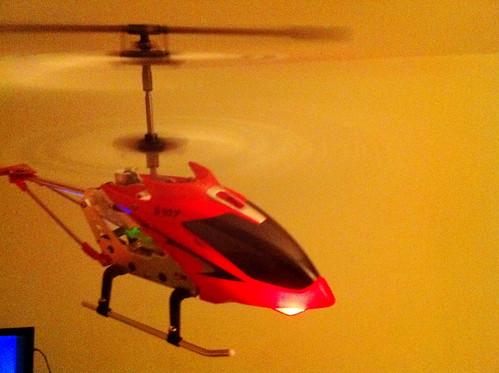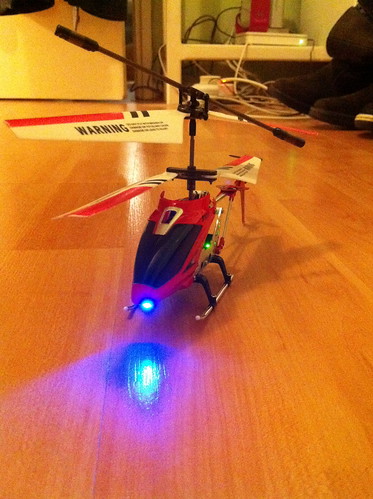I've been thinking about this interview with the CEO of iRobot a lot. It's a few months old but it's fascinating. I was especially struck by this exchange:
"You’ve been pretty scathing about the idea of robot games. What puts you off the idea?
I’ve always loved gadgets and experimenting with what seems like fad and what seems genuinely valuable. I’ve had smart home technologies in my home for decades. One of the things I’m deeply passionate about is that robots need to be practical and useful. Software doesn’t. You can make a beer-drinking iPhone app and make some money. A robot is a serious design and capital investment. The robot needs to serve a purpose and meet a physical need. Robot video games wouldn’t do that: it’s 15 seconds of novel fun to be eclipsed in minutes by a 3D graphics video game. What does a flying robot give you if you’re just watching it that a 3D projection doesn’t? Your actual robot will fly for 10 minutes before it needs new batteries and you can’t actually fire lasers from your robot and blow things up. It’s so handicapped relative to video games. Robotics is a technology we should use to solve major societal problems — let’s solve bomb disposal or the energy crisis — not create more toys."
There's lots of agree with here. Solving the energy crisis or bomb disposal are laudable aims. As is cleaning your floor more lazily. But I couldn't agree that a flying robot is inherently handicapped versus a video-game. I just couldn't work out why I thought that.
And then, while flying my new toy helicopter (£25, all good toy shops) I realised why - it's mastery or the feeling of mastery or the illusion of the feeling of mastery. We're used to video games giving us this - games turns into expert fighter-pilots, supercool snipers, talented footballers and we take that for granted. If we couldn't do this stuff pretty quickly the games would suck. And the fact of the illusion is hidden and diluted by the controller and the screen.*
But it's even more powerful when this happens in the real world. When you feel like you've mastery of something physical. A little bit of intelligence - a gyroscope - and piloting one of these little choppers, which used to be really hard, becomes incredibly easy.
And you don't think - oh this is a devalued experience, I'm not flying this really. You think - I AM A STEEL-NERVED CHOPPER PILOT. I AM STRINGFELLOW HAWKE. You feel great.
That's going to be the key to these things working as games/toys - giving you elite mastery over the physical world. Which lets you pretend really well.
(* I suspect the Kinect is the flipside of this effect. It just points out how divorced your physical twitches are from what actually happens in the game. So, when you're playing Kinect Sports football, and do a sweeping, powerful shot with all your might it randomly flips it over the keeper. You wouldn't notice this disconnect when you're just twitching your thumb, you do when you're actually performing the physical action in the real world. You feel the mismatch with your whole body.)
Anyway.

